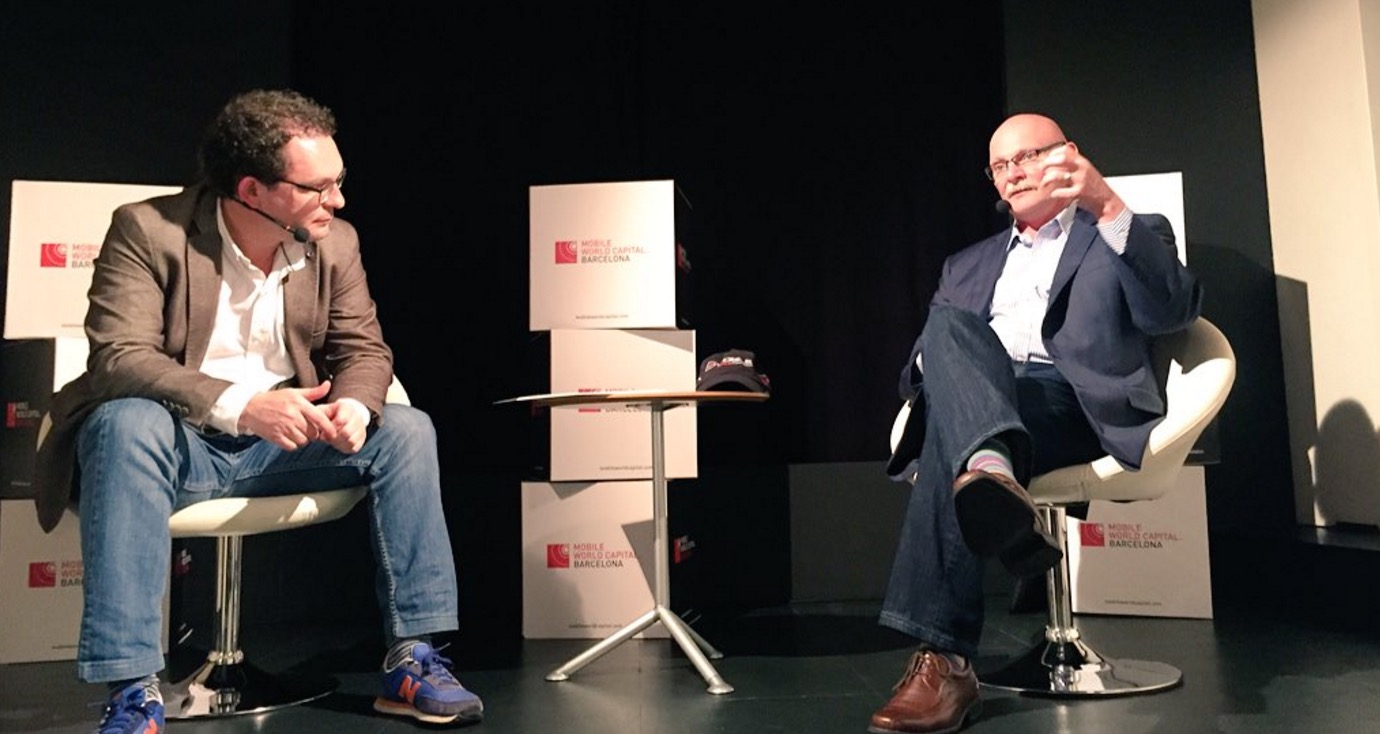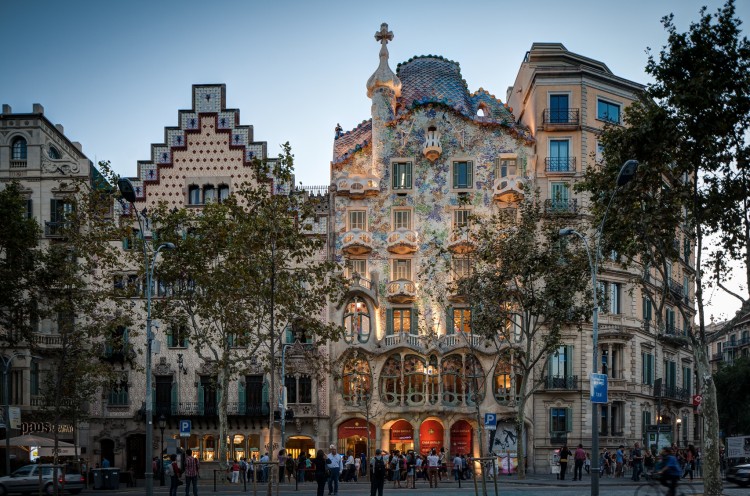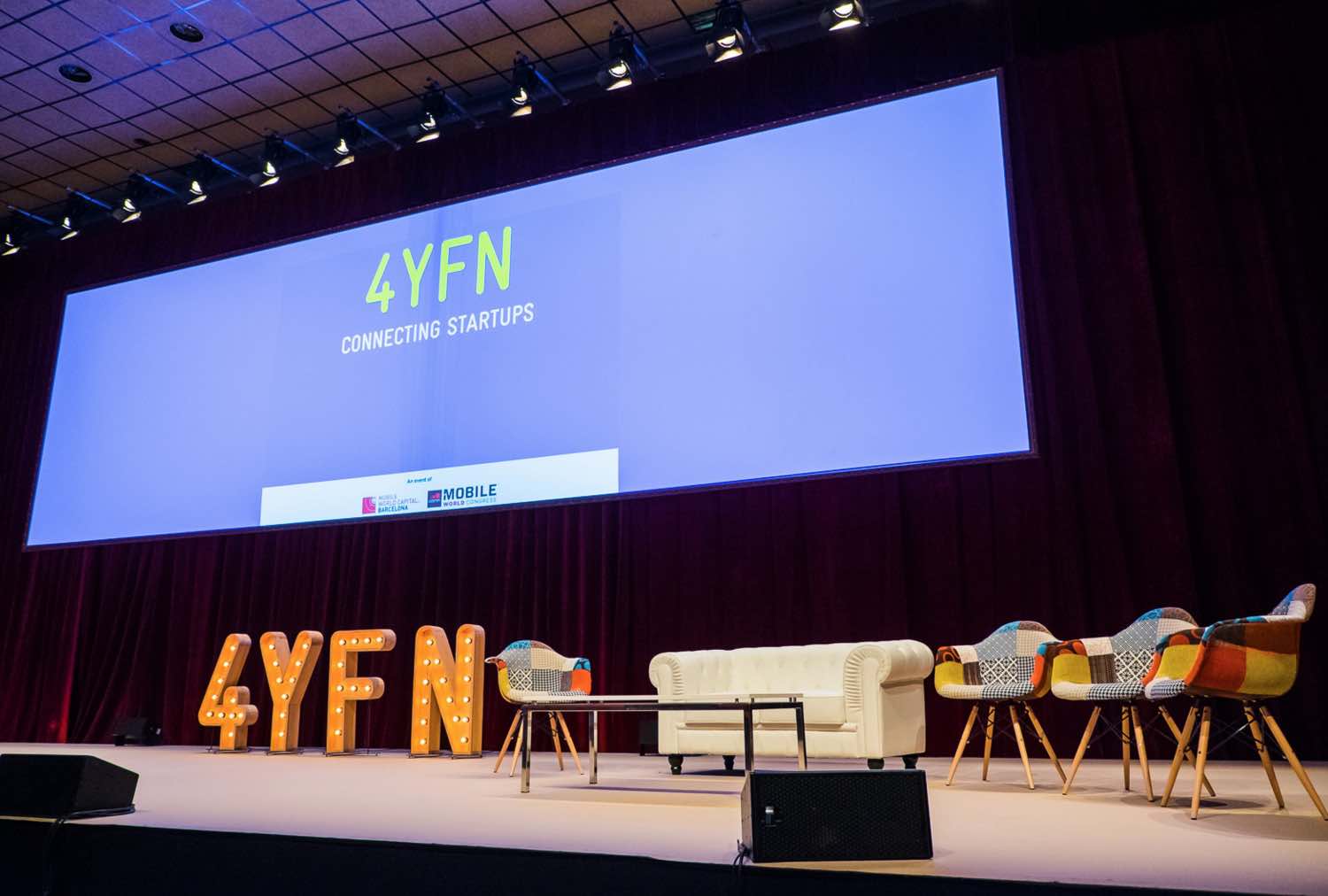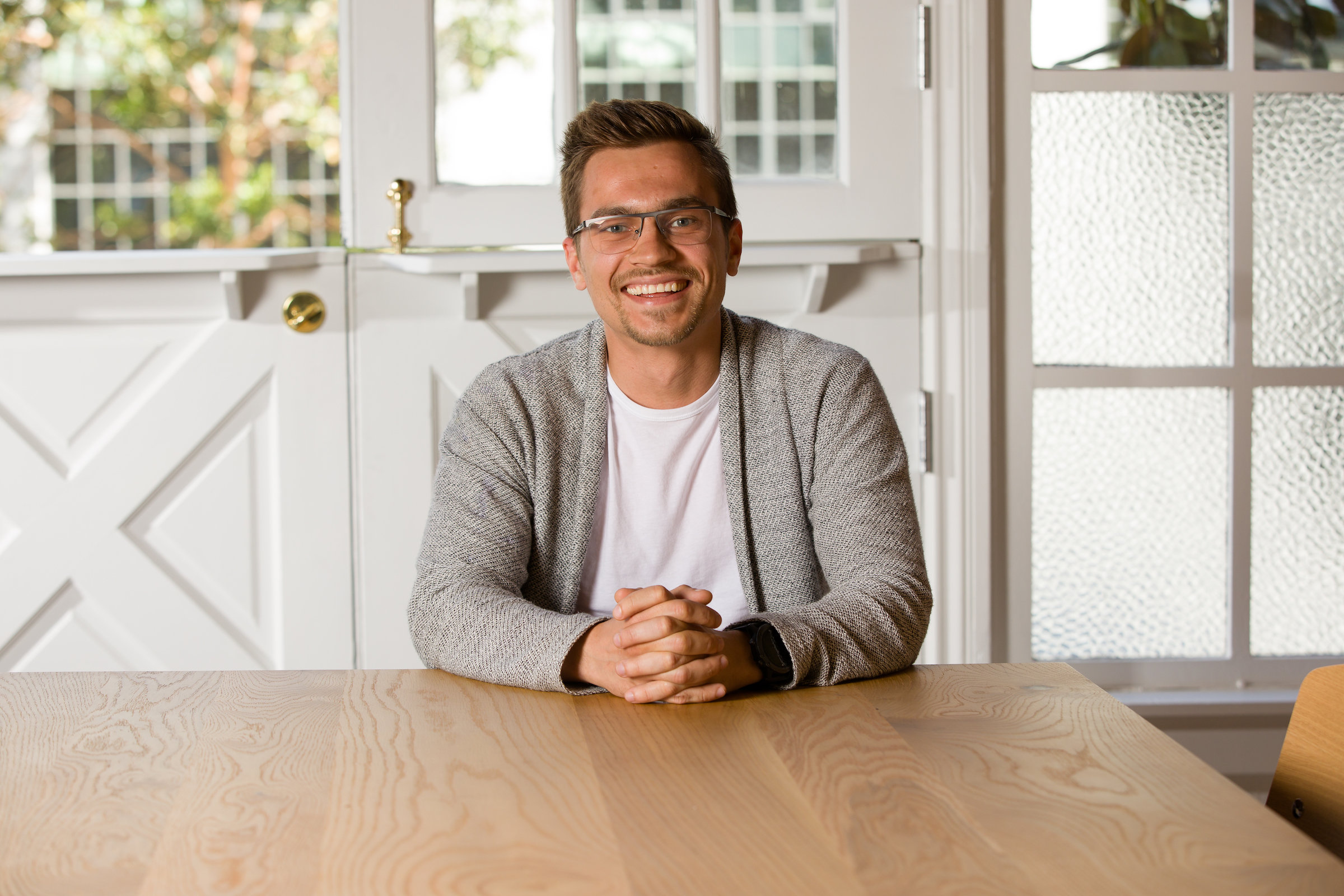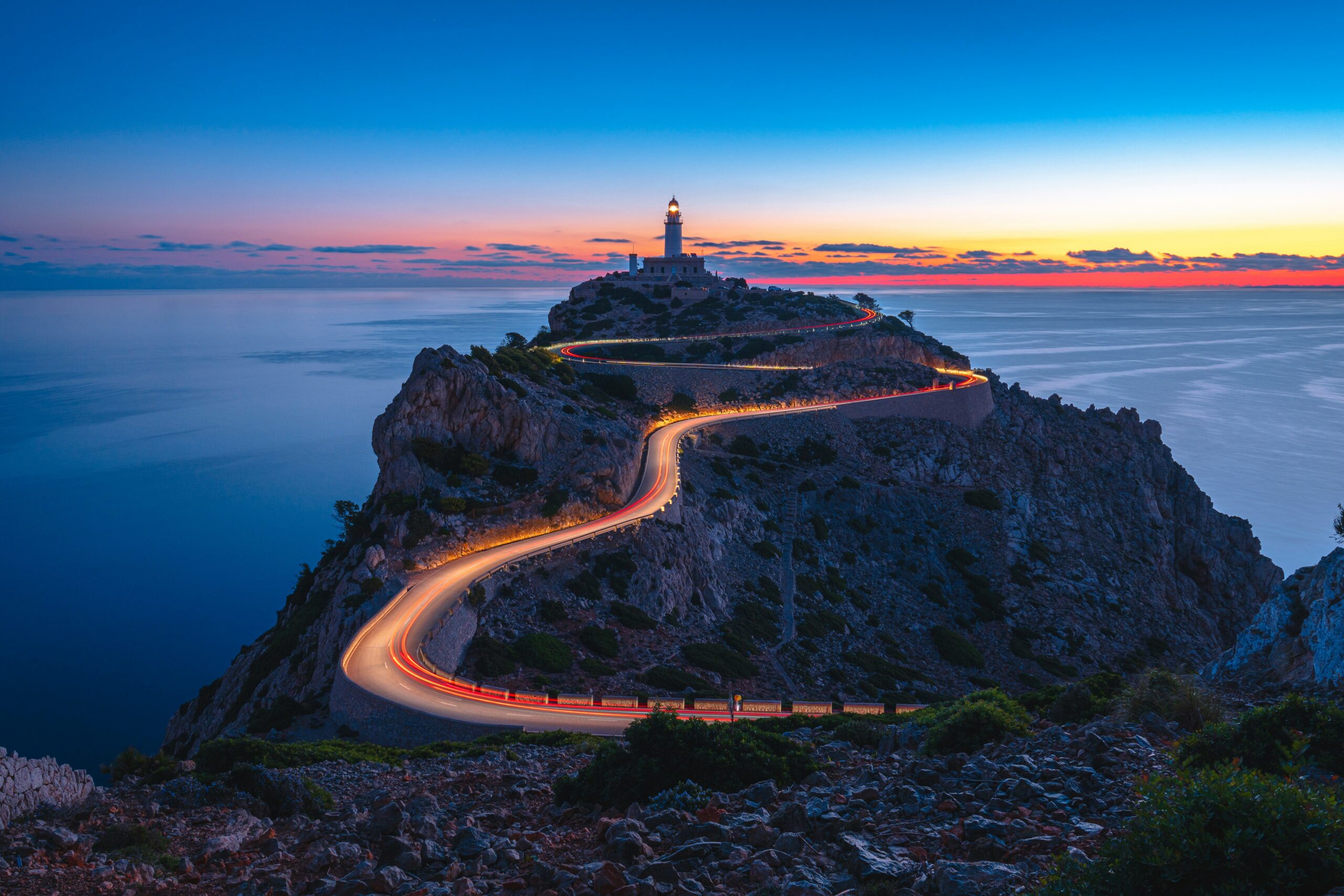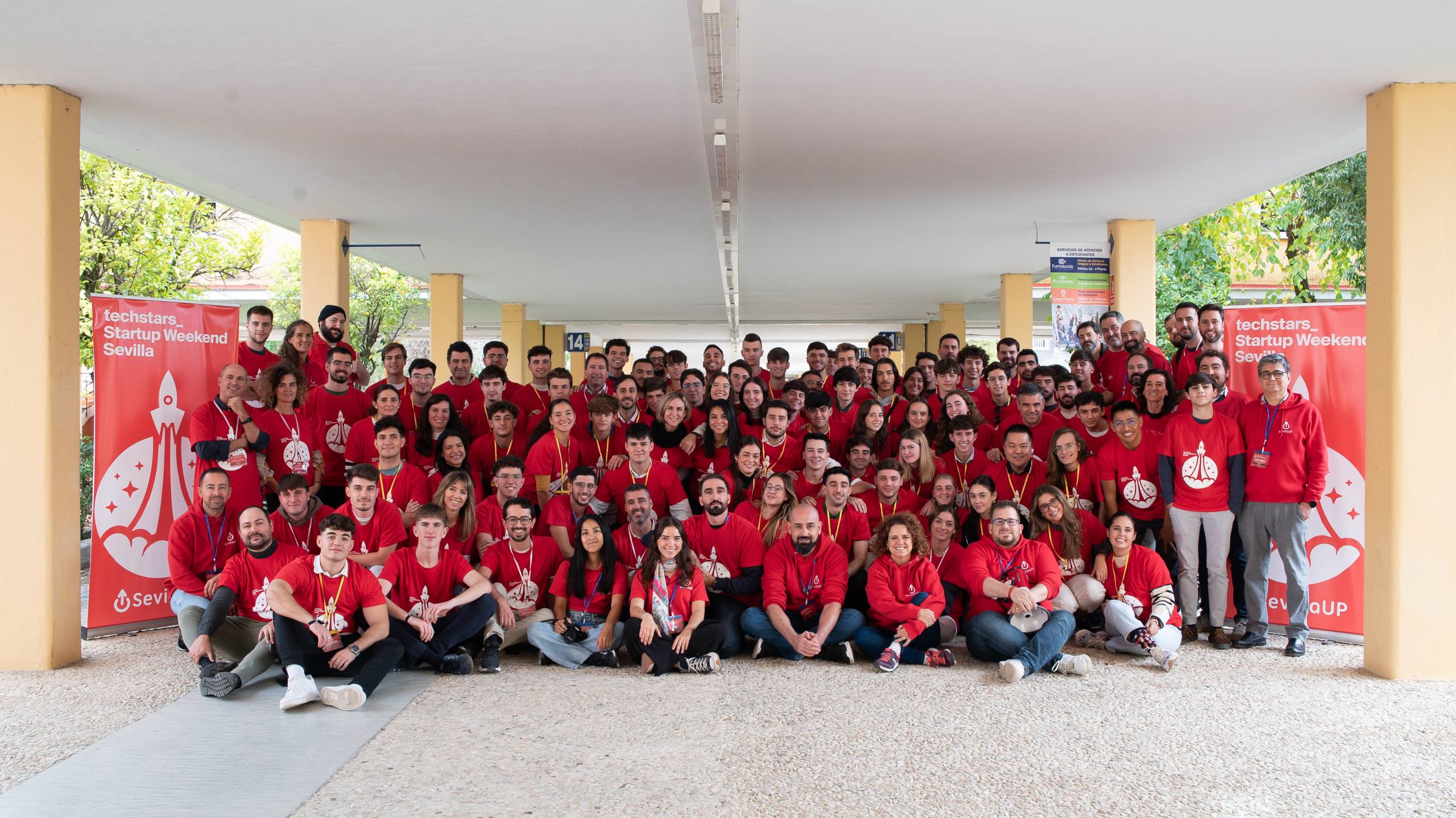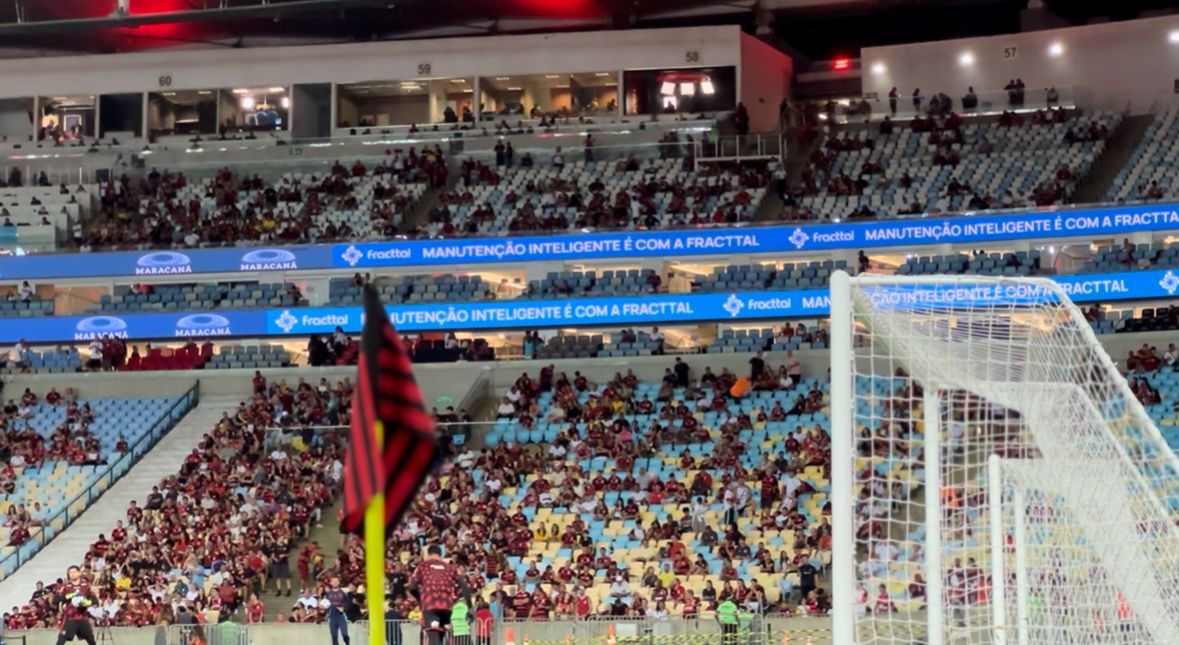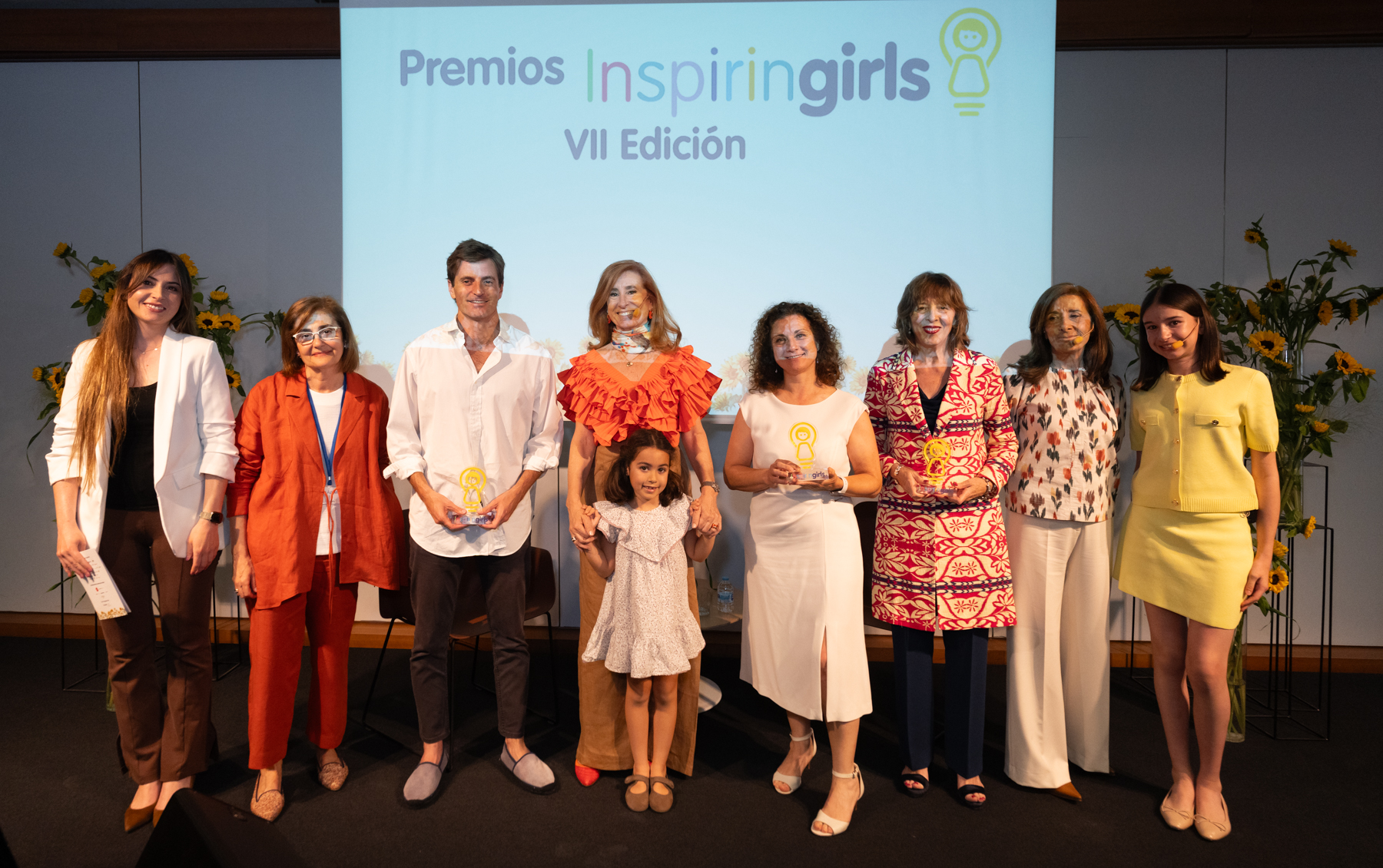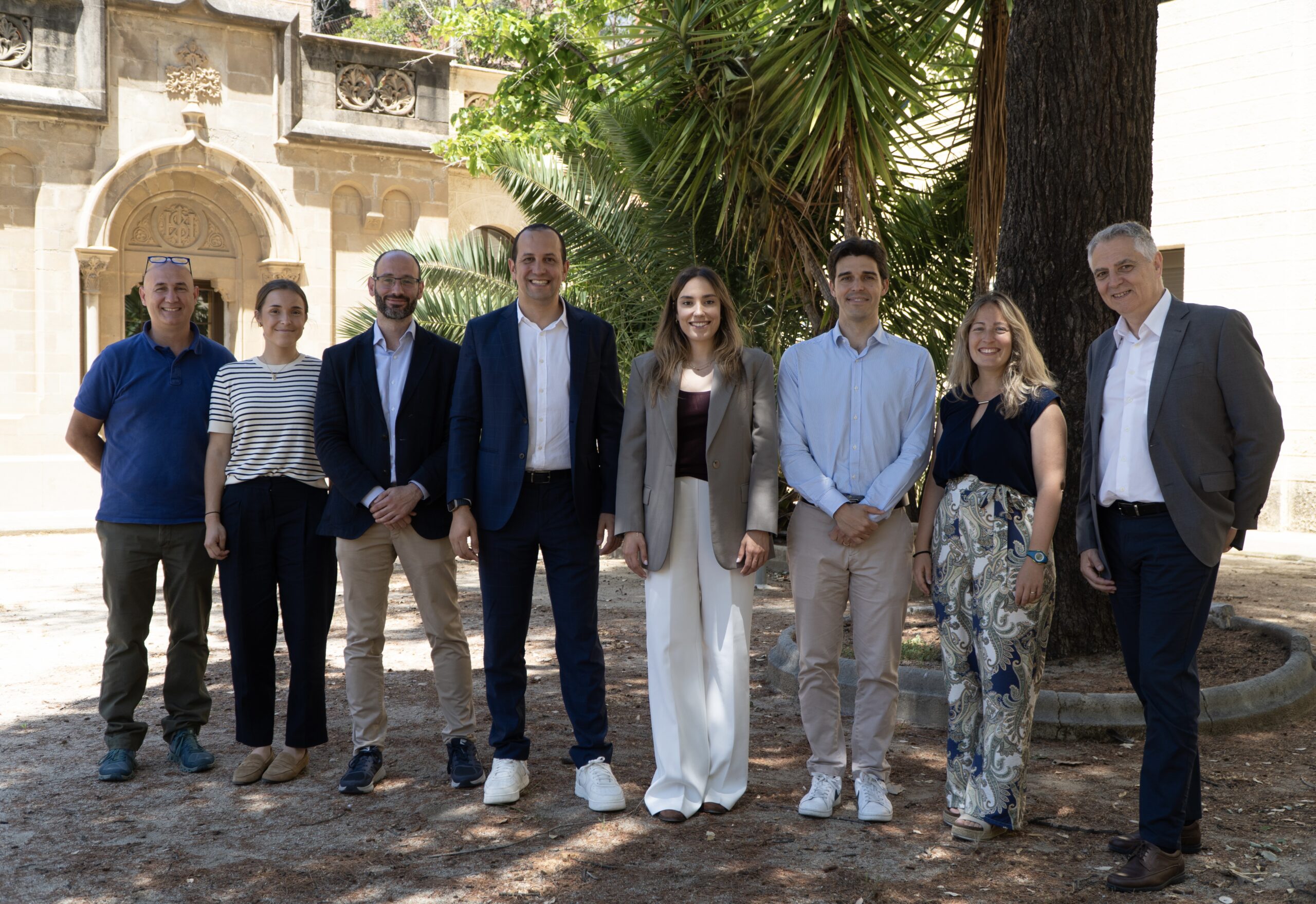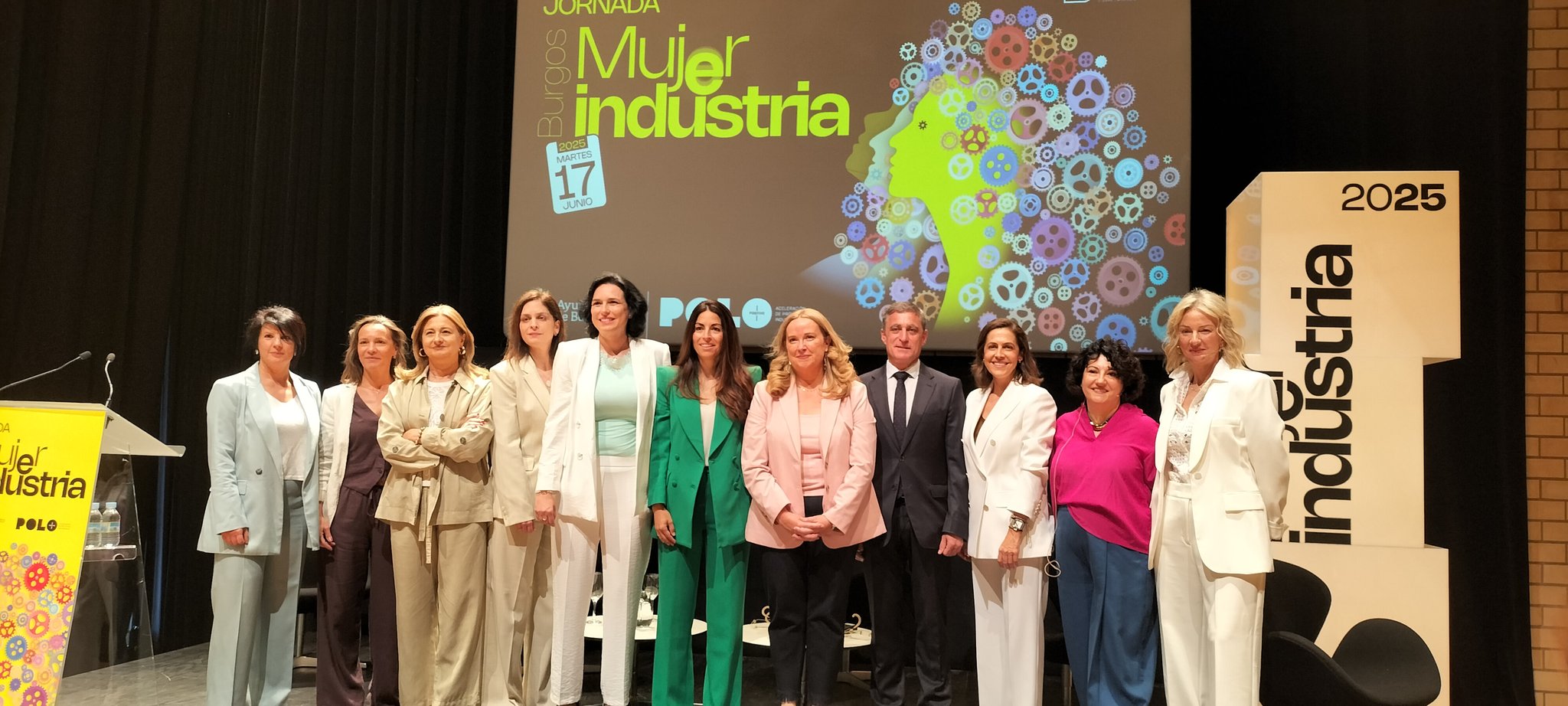Disclaimer: This is a sponsored article, which means that it’s financially supported by Barcelona Tech City.
The last Barcelona Tech City lunch of the year took place on December 11, at Ingracia. The occasion this time was special, since only a few days before the event Aleix Valls was named CEO of Mobile World Capital Barcelona.
In fact, Valls would become one of the main protagonists of the event as he conducted the interview with GSMA CEO John Hoffman on stage.
Prior to the event, and as it is often the case, BCN Tech City’s Miguel Marti presented some numbers in connection to the evolution of the Barcelona-based association in 2015. A year that has seen the transformation of Ecommerce&Tech BCN into Barcelona Tech City. An organisation that is trying to put Barcelona in the map and explain why it has become fertile ground for digital entrepreneurs, startups and investors.
“This year the association has increased the number of subscribers in a considerable 38%, and we now have more than 230 members, representing more than 300 digital companies based in the city”, Martí said.
BCN Tech City held more than 40 events in 2015, as well as workshops with some of the most relevant minds in Barcelona’s ecosystem in a wide variety of areas.
The association expects to open its new headquarters in the city in early 2016. A building that will become the main entrepreneur centre in the city and one of the most important in the country with the help of organisations such as Mobile World Capital Barcelona and its business platform and event devoted to startups and entrepreneurs, 4YFN.
Following Miguel Martí’s introduction, Mobile World Congress (MWC) and GSMA’s CEOs took the stage for a 30-minute interview. What follows is an edited version of the conversation. AleIx Valls played the role of the interviewer and John Hoffman provided interesting answers and insights in regards to his role at GSMA and the evolution of the MWC.
Face to face: Aleix Valls & John Hoffman
Aleix: Thanks for being here John. Many of the people in the audience might not know this, but if I’m not mistaken you’re an architect that ended up in the technology and mobile world. Is that right?
John: Yes, that’s true. I’m an architect by training and practised the job for a while in the US. I got into the mobile business when we only had 1G networks, since my company helped design and build facilities for telecoms where they could store their equipment in. It was fun and I enjoyed it very much.
After that I helped build phone networks and also did some software development for a variety of companies. In 1992 we established the predecessor of MWC. I first went as an attendee, then as an exhibitor and later as an organiser, so I saw it from all angles. Years later I joined GSMA and I have to admit it’s been a fun ride and I’m going to keep it going for a few more years.
Aleix: For those who don’t know, could you please explain what GSMA is?
John: It’s a global trade association for the mobility industry. It was founded in 1997 to develop and implement a pan-European mobile network following the Nordics system. This system, instead of having country specific networks, had just one that allowed users to move from country to country. The idea was to build something similar in Europe based on the GSM standard.
In order to put that together, incumbents and other members of the industry formed an association called Group Special Mobile (GSM), and that turned into GSMA, which is now a global entity that allows anyone to bring their device anywhere in the world to make calls or use data. Sometimes it’s not affordable and that will improve, but right now, at least, it works and offers consumers that service.
global trade body, they have 700 folks, HQ in london, offices also in barcelona, shanghai, hong kong, brazil, dubai. they also have a development fund (mobile for development) mostly in latam and asia for the bottom of the pyramid
At GSMA we consider ourselves technologists, futurists, mobile experts and what we are also trying to become are leaders that will make the world a better place.
Aleix: Mobile World Congress has been in Barcelona since 2006, and now it’s decided to stay here until 2023. What makes Barcelona the right choice for Mobile World Congress?
John: I have to admit that the trade association wasn’t directly involved directly in the convene aspect of GSMA. We were really focused on developing competition and interoperability in the early days for mobile networks. However, we did want to put some things together around mobility and that turned into Mobile World Congress.
We moved it from Cannes to Barcelona 11 years ago and it took off from there. We didn’t know what we were doing, but what happened is that it outgrew Cannes and Barcelona was the right ecosystem: it offered the right balance between destination/location, good connectivity and an environment that really fostered what we were trying to achieve, which was to bring industry players together to discuss the future of mobile.
The latter not only takes place at Fira Gran Via, but also throughout the city and with the support of a public-private partnership between multiple entities.
We came here and we found that, as the mobile ecosystem grew around the world, this became the flagship event for the industry.
The idea these days is to expand an event that only lasts 3 to 4 days throughout the year. We want it to become of social benefit for Barcelona, the region and Spain. And I think we’re getting there.
Aleix: Mobile World Congress will here until 2023. Does this mean that the city is doing a good job? Is there room for improvement? Where are we in your opinion?
John: We first signed a 6 year contract and when we decided to move to Gran Via we were able to use a state-of-the-art facility for the Congress. As a result of that we had to grow the event to fill up a very large venue, and we found that there was demand for that.
Over the last 5 to 6 years we’ve seen a lot of contraction in the mobility industry. Nokia is gone, Alcatel (now Alcatel-Lucent) too and many other players are struggling. We see see this tremendous consolidation (also on the operators side) happening, and yet, when we put those statistics together and compare them to Mobile World Congress we see a totally different trend. And people ask why?
What we did is take all of the verticals that are adjacent and affected my mobility: finance, transportation, health, IoT, consumer goods, etc. They are all being mobilised.
The mobility sector has decreased, but everything is being mobilised and that’s why we’ve been able to expand and make it bigger. It’s a unique advantage and it has allowed us to change the world mostly in a good way. The GDP of many economies, education, health and many other industries are strongly associated to mobility. Mobile is having a real impact in the world and Barcelona has become a synonym of mobile (and Mobile World Congress) for many people.
Aleix: Startup and entrepreneurs. Are they really competing with corporates or should they try to work together and collaborate?
John: Innovation doesn’t occur as much in large corporations as it used to. A lot of disruption starts with a great idea that’s sitting in this room or is out in the street, it’s not necessarily in R&D centres around the world.
Startup ecosystems are critical to the world, not just in the field of tech and mobility, but in general. Google, Facebook, Uber or Airbnb are all tech-based companies that have grown tremendously, but a lot is also happening in garages and small offices worldwide, and we need to foster that.
Great ideas usually take place when you put the right people, time and place together. When those people have access to money, and when they’re part of an ecosystem that they can identify themselves with. One of our jobs is to try to bring those people together through introductions. Mobile World Capital is a great example of this.
Aleix: Are big corporations embracing that knowledge that comes from startups? Or do they see those companies as competitors? What should be the type of collaboration between startups and corporates?
John: The world is a competitive place and there’s always going to be competition and collaboration.
Large companies need innovation to continue to be successful, to continue to grow. If they can’t do it in house, one way to do it is to find these disruptive companies with great ideas and do several things with them: put them out of business, partner with them, buy them or ignore them and hope they go away.
In the mobile industry industry, a lot of companies will take all of those approaches, sometimes at the same time. They will Invest in one company, partner with a different one, buy another one, etc, because they don’t know what’s going happen.
Our job is to facilitate those relationships and contribute to everybody’s success.
Aleix: You’ve visited Barcelona very often in the past few years. Many are starting to see the city as a true startup and tech ecosystem. How do you see Barcelona against other European hubs?
John: In spite of some cultural difficulties, you’ve been quite successful. Nobody wants to fail, but in the US the startup ecosystem is acceptance of failure or learning. If you fail in the US, you just start over and that’s not tattooed on your head. It’s more about what you’ve learned.
Culturally, not just in Spain but also in other European countries, failure is not embraced and that makes life difficult for people and entrepreneurs. When i lived in Denmark a lot of people wanted to work for the government. It’s an interesting European culture and Barcelona has tried to break away from it but it’s still hard. Israel is a culture of ‘we can do anything’. then there are also pockets of innovation.
Barcelona is not a global brand known for innovation, but it’s on the path because of initiatives like Mobile World Capital and many others, public and private.
You need success stories to bring in more money and talent and combine that with schools, education, etc. This never happens overnight, it takes time.
Aleix: This year we’ll hold the third edition of 4YFN. The event is growing and in the next edition we expect to double the size of the event. How do you think 4YFN complements MWC?
One of the things that we viewed in a very positive about Barcelona was that the city that had two great venues. I love Montjuic; there’s nothing more spectacular that standing at the bottom of Plaza de Espanya and looking at the mountain and seeing the lights, water, etc. It’s unbelievable. But Fira Montjuic had limitations for us, because of its size.
When we went to Gran Via, the idea was always to do something else at the same time in Montjuic, to incubate companies and ideas that couldn’t afford to be at Mobile World Congress or what were not ready for it. We tried a couple of things ourselves and we didn’t get it right, but the Mobile World Capital did and 4YFN has become a great success.
It’s a great way of complementing Mobile World Congress and one mechanism to bring to Barcelona a different part of the ecosystem: startups, entrepreneurs and investors. We need to keep focusing on that part of the ecosystem to help it develop.
John: Now that you’ve been appointed CEO of Mobile World Capital. What are you going to do?
Aleix: We’re building momentum, we have the Mobile World Capital in the right place, we are delivering good initiatives (mSchools, health, etc) and we want to learn from that in order to improve and in order to contribute to Barcelona’s digital transformation.
That is in area where the Mobile World Capital can help: in understanding society and become the lighthouse of that transformation.




